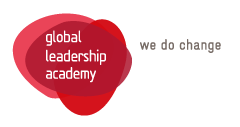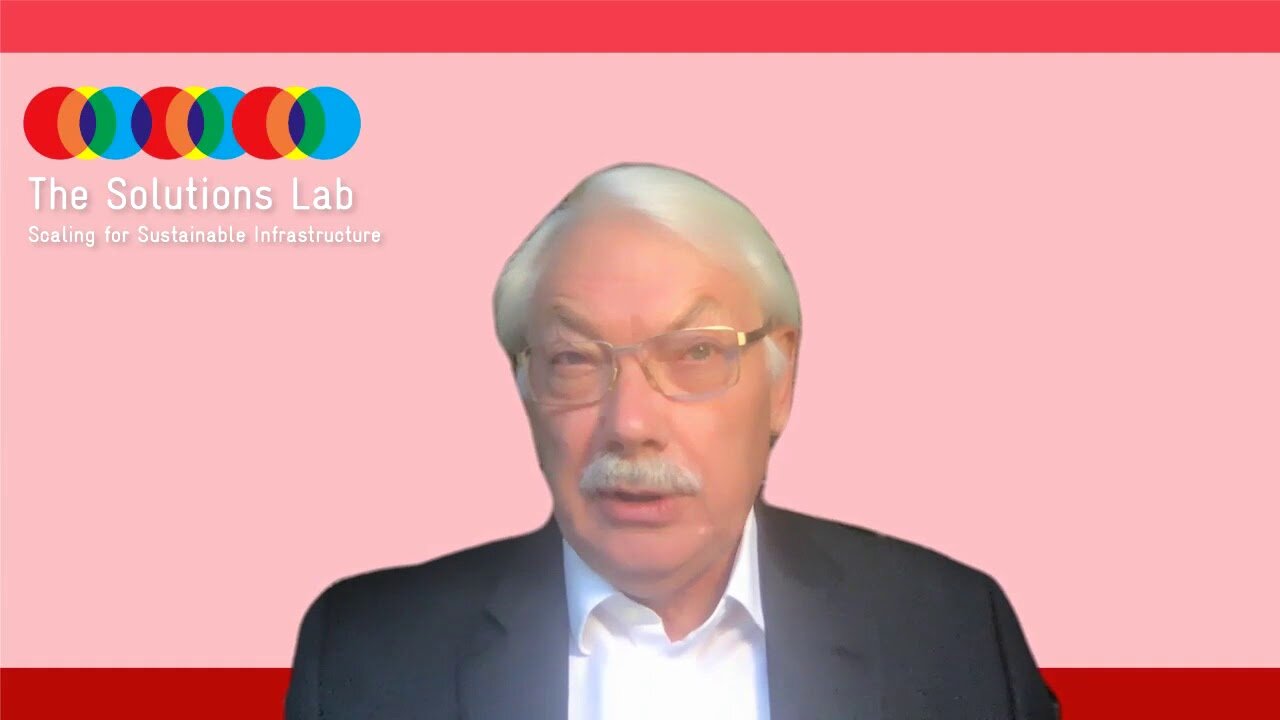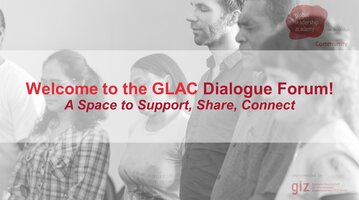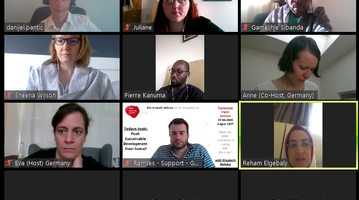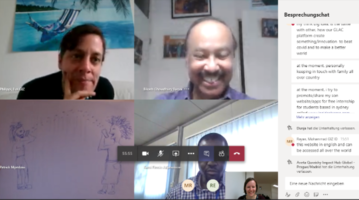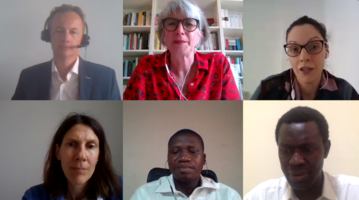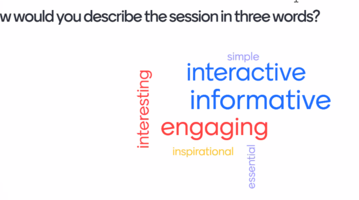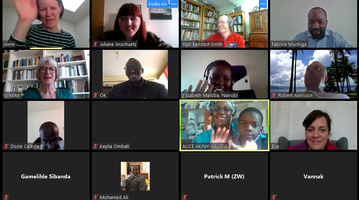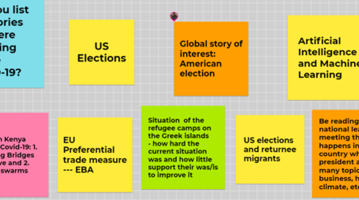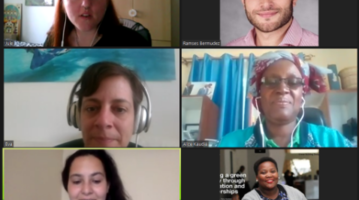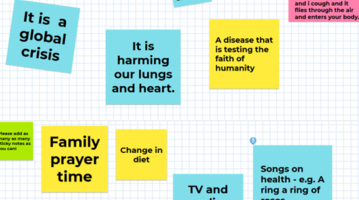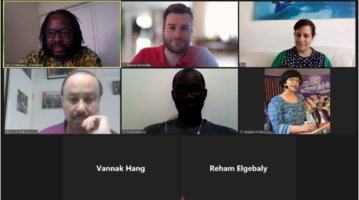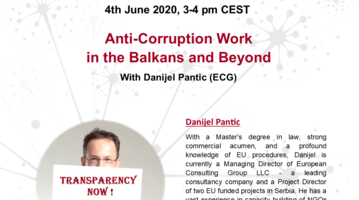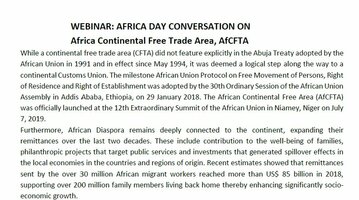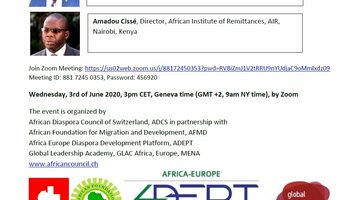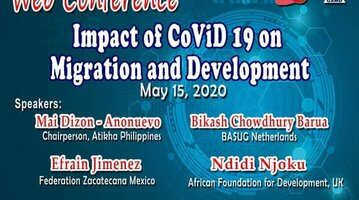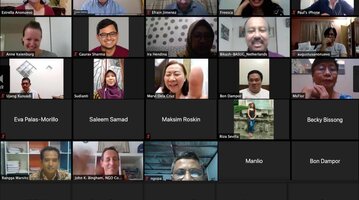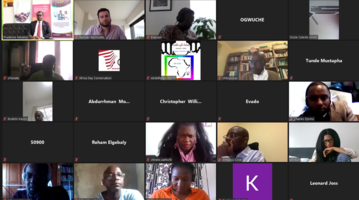GLAC Dialogue Forum
As an action network working towards the Agenda 2030 we know there is no time to lose if we want to implement the 17 sustainable development goals (SDGs) in time. Therefore we offer a space for connection, exchange and collaboration concerning current topics related to the SDGs on which the partners and members of different communities within the GLAC Network have competence.
The GLAC Dialogue Forum offers a range of different formats:
The Input Sessions invite speakers from the GLAC Network as well as guests to give a short presentation that triggers a discussion with all community members participating and may result in taking further steps together, deepening dialogue, voicing change and taking action by the global GLAC Network.
The Community Café provides a place to come together, (re)connect, change ideas and identify common areas of engagement. GLAC Network members are invited to step into the café two to three times a month and experience state-of-the-art formats like Speed Dating, Happy Hour and Celebrating Achievements. These formats are not open to the public.
Speakers
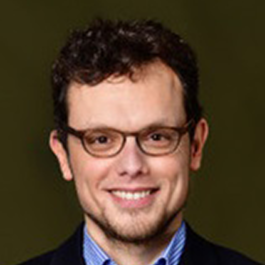
René El Saman
René El Saman
René El Saman LL.M. is working as Advisor in GIZ’s Sector Programme on Anti-corruption and Integrity. He is advising the German Federal Ministry of Economic Cooperation and Development on different topics related to anti-corruption. He has several years of experience in working on administrative reforms and with anti-corruption institutions especially in Afghanistan and Madagascar. He is responsible for GIZ’s planning and training instrument Anti-corruption WORKS.
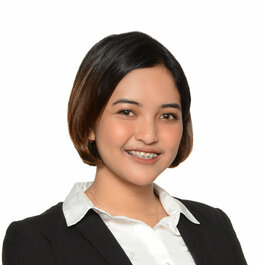
Elisabeth Medina
Elisabeth Medina
Elisabeth Medina is a public official who works for the Corruption Eradication Commission of the Republic of Indonesia. She is a part of JAGA, which aims to encourage transparency and good governance practice in public services. During her assignment, together with the team, she developed two main menus that enable the citizen to file complaints: JAGA Bansos (social aid) and JAGA Penanganan COVID-19 (COVID-19 handling). Currently, she is initiating JAGA Data Challenge, a data competition that encourages citizens to analyze data available at JAGA. She is interested in governance and transparency issues, two main problems that still exist in Indonesia.
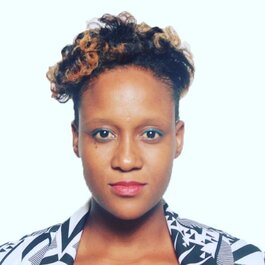
Rethabile Konopo
Rethabile Konopo
Rethabile is a Legal & Systems Designer, Founder of Pereko Foundation in Botswana. She has over ten years of experience in both nonprofit and private sectors with a strong background in business and law to lead research in legal and systems design projects for access to justice. Rethabile had a groundbreaking stay at Stanford University, Hasso Plattner School of Design (d.School), as the John. S. Knight Fellowships Affiliate where she developed an immense interest in the human-centered process of creative problem-solving, spending time at the Legal Design Lab and the K12 Lab. She participated as a fellow for d.School Designing for Social Systems, joining high impact social sector leaders across the world and recently published “The ABCs of Design Thinking PlayBook'' on Amazon and the “FutureLab Toolkit”.
https://www.perekofoundation.org/
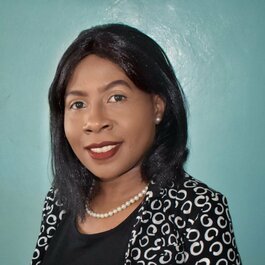
Sylvia Mukasa
Sylvia Mukasa
An award-winning entrepreneur, GLAC community member Sylvia is Founder/CEO of GlobalX Investments Ltd/GlobalX Innovation Labs. She is passionate about empowering Women in Tech and contributing to the Entrepreneurial Ecosystem in Africa and globally. She is Country Co-Founder/Chapter Lead (Kenya) for Women in Tech Africa (WiTA), which won the United Nations EQUALS in Tech Award, Leadership Category in 2018. She is a 2014 TechWomen Fellow, an Initiative of the U.S. Department of State's Bureau of Educational and Cultural Affairs, for empowering, the next generation of women leaders in STEM from Africa, Central and South Asia, and the Middle East.
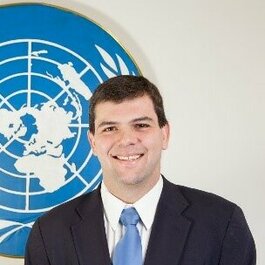
Jairo Acuña-Alfaro
Jairo Acuña-Alfaro
Jairo is the Team Leader of Governance and Peacebuilding for Latin Americas and the Caribbean at the United Nations Development Programme (UNDP). From 2014 to 2019 he was the Global Policy Advisor on Core Government Functions and Public Service Excellence at the Bureau for Policy and Programme Support at UNDP New York. From 2007 to 2014 he was policy advisor at UNDP Viet Nam, where he pioneered as lead architect for the Viet Nam Provincial Governance and Public Administration Index, the largest ever multi-year social accountability in the country. Jairo has experience in governance and public sector reform in such organizations as the World Bank Institute, the Danish International Development Agency and more. He was a DPhil (cand) and holds a M.Litt. from Oxford University, an M.A. in Political Economy from the University of Essex and an M.Sc. In International Relations from Universidad Nacional, Costa Rica.
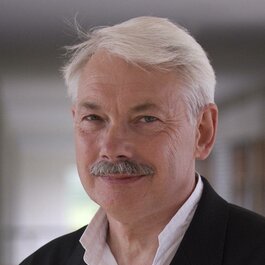
Peter Head
Peter Head
Peter is a civil and structural engineer who has become a recognised world leader in major bridges, advanced composite technology and integrated systems planning for sustainable development in cities and regions, working in Maunsell, AECOM and Arup. In April 2011 he set up The Ecological Sequestration Trust, a Charity which has brought together the world’s top scientists, engineers, economists, financiers, health, ecology and other specialists to create tools to help accelerate tackling climate change and regenerative development. Resilience Brokers is the operating company. Peter helped to write SDG11 and was on the Planetary Health Commission. He is visiting professor in sustainable systems engineering at University of Bristol. In 2019-20 Peter was a member of the GLAC’s Solutions Lab and also co-founded Pivot Projects.
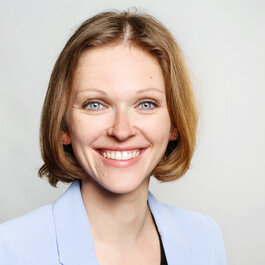
Dorothea Czarnecki
Dorothea Czarnecki
Dorothea Czarnecki has worked in the anti-human trafficking field for the last fifteen years in Latin America, Europe and South East Asia. She holds a Ph.D. in social sciences in the field of commercial sexual exploitation of girls with focus on Guatemala. Currently she is the Interim Director of ECPAT Germany and its Anti-Child Trafficking and Advocacy Senior Expert. Since 2018, she is member of the Lanzarote Committee at the Council of Europe and the Vice-Chair on the Board of Trustees of ECPAT International.
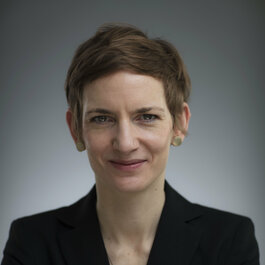
Sophia Wirsching
Sophia Wirsching
Sophia Wirsching aims to highlight the importance of human rights in anti-trafficking policies and migration governance approaches. Since September 2018 she is executive director of KOK – German NGO Network against Trafficking in Human Beings. She studied Political Sciences and Sociology brings extensive experience from her work between 2006 and 2018 with the German protestant development service Bread for the World on migrants‘ and refugee rights.
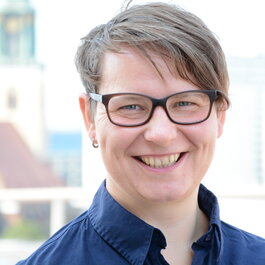
Kathrin Tietze
Kathrin Tietze
Kathrin is an experienced and passionate trainer, facilitator and speaker with a special focus on all things equality, inclusion and diversity. With over 20 years of experience in this ever-evolving field as practitioner and researcher she covers everything from developing and implementing strategies, running workshops, publishing papers to speaking at conferences.
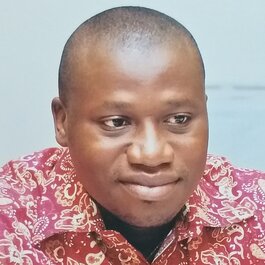
Fabrice Fifonsi
Fabrice Fifonsi
Fabrice Fifonsi is a visionary leader, change agent, and good governance advocate. He has extensive knowledge and experience in design thinking, development, implementation, and management, as well as overall organizational leadership. He holds a Master of Arts degree in Sociology and Anthropology. With established notoriety as a Governance, Anti-corruption, and Parliamentary Strengthening Expert for the past 10 years, Mr. Fifonsi currently serves as the Executive Director at the Secretariat of the African Parliamentarians’ Network Against Corruption (APNAC), the lead African network of parliamentarians committed to fighting corruption and promoting good governance.
https://apnacafrica.org/en_US/
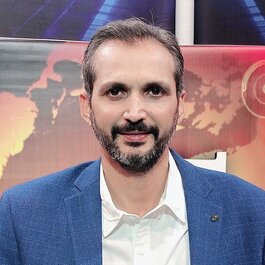
Shakeel Ahmad Ramay
Shakeel Ahmad Ramay
Shakeel Ahmad is a political economist with strong background in policy research, economic forecasting, global diplomacy and changing dynamics of global governance. He functions as Director at the Asia Study Center where he brings in his deep understanding of China, Belt&Route Imitative (BRI), China-Pakistan Economic Corridor (CPEC), Eurasia, Central Asia, Gulf Council of Cooperation, governance, digital diplomacy, International Financial Institutions (IFIs) and Shanghai Cooperation Organization (SCO). Shakeel is experienced in the fields of training of parliamentarians, peace and security, leadership, management, diplomacy and digital diplomacy. He also teaches at Foreign Services Academy of Pakistan.
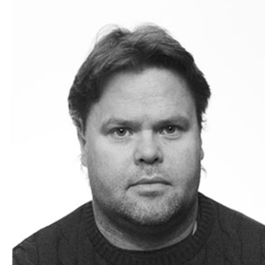
Bert-Ola Bergstrand
Bert-Ola Bergstrand
Bert-Ola Bergstrand is a system entrepreneur and global action facilitator. He is an initiator, co-founder and founder of a number of global platforms and networks in the impact economy e.g. Impact Journey and SoCap network. All initiatives are focusing on amplifying the human potential through crowds social, intellectual and financial Capital and thereby solving global challenges. Today, he is primarily working with the UN center of Excellence on Smart Sustainable Citites (lead by Trondheim municipality and NTNU, Norwegian University of Science and Technology, in establishing learning society models (Societal Innovation).
https://sites.google.com/trondheim.kommune.no/sdgexcellence/home
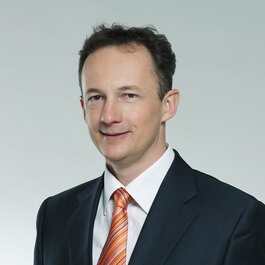
Danijel Pantic
Danijel Pantic
With a Master’s degree in law, strong commercial acumen, and a profound knowledge of EU procedures, Danijel is currently a Managing Director of European Consulting Group LLC - a leading consultancy company and a Project Director of two EU funded projects in Serbia. He has a vast experience in capacity building of NGOs and CSOs. He was a Secretary General of the European Movement in Serbia, founder and the first Vice President of the Serbian Association of Managers and Transparency International Serbia.
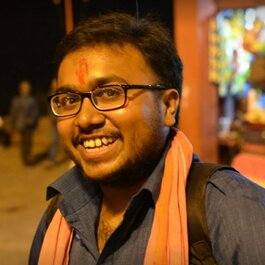
Mayank Jain
Mayank Jain
Mayank is a serial social entrepreneur working in the domain of agriculture, agritech and engineering, ensuring sustainable agrarian livelihoods for farmers. He works on the issue of accessibility currently running the social enterprise SumArth, a not-for-profit based out of Gaya working with more than 10,000 farmers. Mayank believes in using engineering for societal change. As a grassroot innovator, he has developed two brands along with deploying and testing more than 8 technologies on ground. He has also started Language As a Service Platform Setu - The Linguistic Bridge with the aim of making authentic information accessible to all. He is part of Global Shapers Community, Global Social Economy Forum. He also serves as board member of Indian Youth Climate Network.
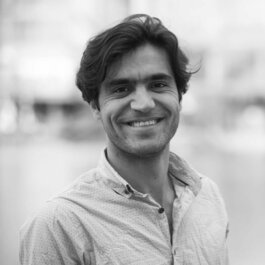
Imran Khan
Imran Khan
Imran is working with Skateistan as Program Manager, his role is to make sure children in the programs of Skateistan are emotionally, physically, mentally and sexually safe. Imran believes that most children's needs are being ignored and only active listening, being interested to help children both in normal and crisis situation is very important and vital. Imran has a master's degree in Gender Studies and is working with children and young people from the last eight years in different regions, especially in South Asia.
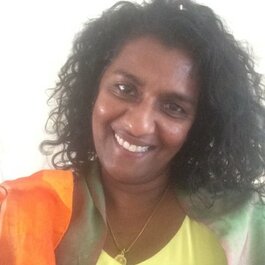
Dr. Vijitha M. Eyango
Dr. Vijitha M. Eyango
Vijitha is a strategy and policy advisor currently supporting policy makers on COVID response and mitigation. Her professional journey began at UCLA where she taught and led database and information system design. She added two decades of development and humanitarian policy and program experience as she led education, workforce and gender initiatives in a career that has spanned USAID, UNICEF, and IREX. She is passionate about improving educational relevance and building measurable and locally sustainable solutions targeting youth and emerging leaders in Africa.
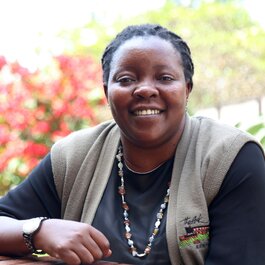
Elizabeth Maloba
Elizabeth Maloba
Elizabeth is a co-founder of Nahari - a collective of changemakers applying creative approaches to provide safe spaces for joint decsion making, communal knowledge exchange, and collaborativem learning. She is a Speaker, Moderator and Entrepreneur with over 20 years’ experience in addressing complex challenges – her passion is fostering the development of lasting, mutually beneficial relationships that contribute to global sustainable development.
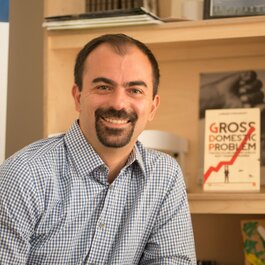
Lorenzo Fioramonti
Lorenzo Fioramonti
Lorenzo Fioramonti is Professor of Political Economy at the University of Pretoria (South Africa) and, from 2018 to 2019, he was Deputy Minister and Minister of Education, University and Research in Italy. His decision to make sustainable development education mandatory in schools at all levels made headlines around the world, as Italy became the first country globally to do so. Prof. Fioramonti's books are translated in several languages and his articles have appeared, among others, in The New York Times, Financial Times and Harvard Business Review.
145
Participants
Total number of all participants in GLAC Dialogue Forum events as of 2021
33
Countries
“This is a time to benefit from group thinking and ideation”
Vijitha Eyango
Topics
René El Saman introduced AC WORKS, a dynamic workshop format, designed by GIZ to address the negative impacts of corruption in challenging project environments. Corruption is a major obstacle to sustainable development. GIZ programs are often implemented in countries scoring low in Transparency International’s Corruption Perception Index and other relevant studies. Implementing projects in a corrupt context poses special challenges, as corruption impedes the achievement of project goals and interferes with the intended impact.
AC WORKS aims to support planning processes. It comprises training elements to sensitize project members for corruption risks or to embed the topic of anti-corruption in wider groups such as GIZ country teams.
Elisabeth Medina from the Indonesian Anti-Corruption Agency (KPK) introduced the JAGA platform run by the KPK in Indonesia, providing information on local public services. At the same time, the platform offers a mechanism that allows men and women to report corruption-related grievances directly to the national Anti-Corruption Agency.
JAGA compiles data of services provided by selected other government institutions and manages them according to the needs of the public, which are easy to be understood, real-time, valid, and informative.
Currently, JAGA covers issues related to education, health, licensing, village fund, and government social assistance program. It collects and shares information from 404,000 schools, 2,777 government hospitals, 10,051 health centers, 536 One-Stop Service profiles, and 48,000 villages' systems.
In 2020, JAGA launched a new feature of Social Aid as part of JAGA’s COVID-19 response. This feature works as a channel that allows the citizen to report any misuse of the fund; and provides all needed information about the Government Social Assistance Fund Program. In collaboration with related ministries and 542 local governments, it has solved nearly 1,000 complaints to this day. At the same time, JAGA continues its assistance to help the citizen, especially in Social Aid Distribution, by opening up a new dedicated hotline just in September 2021.
Presentation: "JAGA - Open Government, Empowering Citizens"
Get in touch with Elisabeth Medina:
Elisabeth.Saraswati@kpk.go.id or elisabethmedinads@gmail.com
The current trends show that tomorrow's jobs will look different from today's. The question is how has the digital shift affected the regulatory requirements of working. How might we redesign today's jobs to fit into the future of work?
As rapid digital transformations happen, building inclusive digital economies is vital for inclusive growth and achieving gender equality. The platform economy should therefore have a transformative impact that does not exacerbate gender inequalities. According to the 2021 GSMA Mobile Gender Gap Report for instance, there are still 74 million unconnected women in Sub-Saharan Africa (SSA). Women are also still less likely to own a mobile phone and are 37% less likely to use mobile Internet compared to men in the region. Given these kinds of scenarios, are women producers and consumers in this economy and to what extent is their participation? What are the gaps and challenges? Let us take a deep dive into this conversation, which I hope will inspire tech companies, private sector, NGOs, development partners, governments, investors and civil society to invest in women to grow an inclusive platform economy.
PRESENTATION "DIGITAL PLATFORMS AND THE GENDER GAP"
Get in touch with Sylvia Mukasa:
The corona pandemic is no longer just a health crisis. In Latin America and the Caribbean 30 million people are projected to fall into poverty and the number of unemployed will rise to over 44 million. In countries where large sections of the population already distrust their governments, this is an explosive mix. How can governments respond to these challenges – and possibly, by changing their policies, lay the foundations for more social coherence, equality and resilience in their societies?
Since 2008 ecology in 20% of the world’s land has been compromised and climate change is accelerating with a 16% increase in greenhouse gas emissions. Ecological footprint has increased by 25%, forests are being pulled down and burning, and pandemics are becoming more frequent and serious as a result. Enough is enough! To enable 9 billion people to live a sustainable resilient life in 2050 we need an urgent and radical change and transformation globally!
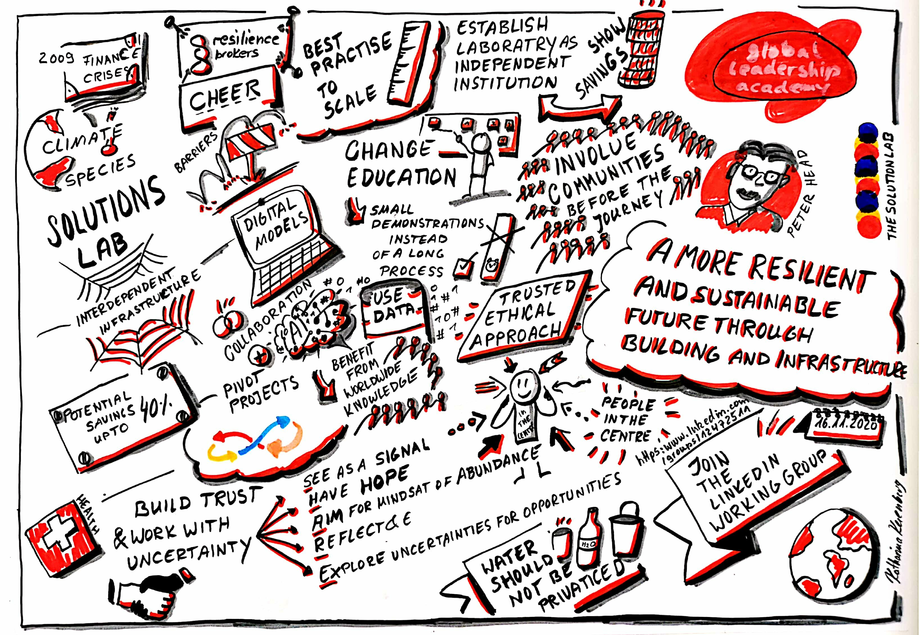
A couple of months into the pandemic, what do we know about the challenging situation of trafficked persons and those vulnerable to trafficking, exploitation and abuse? What new ideas and alliances are there, possibly accelerated by Covid 19, to help trafficked persons and to change the structures that make human trafficking possible, also with regard to the worldwide implementation of the 17 SDGs?
Join us on an exploration around diversity and inclusion/ racism and critical whiteness ... focus is a European context as there is so much to do here, but any input is very welcome! Come and bring an object/ picture/ poem/ quote/ song etc to the discussion that is personally representative for you and this huge topic. This could be the start to forming a group of dedicated people to move this area forward, open discourses, facilitate movement personally and for society as a whole! We need all of you to make this happen!
Africa is often portrayed as a miserable place plagued with wars and other vices even though it is a well-resourced continent with its riches and various resources. The challenges we are currently facing find their roots somehow in chronic mismanagement, poor leadership and endemic corruption…
Perspectives about Africa need and have to change. Africa has to reposition itself. How can we achieve a peaceful and prosperous Africa? What we need is the genuine fight against corruption, the change in mentality, and a responsible civic education. Parliamentarians have a key role - but civil society also has a responsibility and an important role to play here.
The challenges facing humanity today are complex - and have become increasingly complex. New technologies and their social and economic consequences, climate change, and now a pandemic of unprecedented proportions. In these times, special leadership is needed - let us call this leadership imagination. This kind of leadership is characterised by wisdom, sharing, optimism and the ability to communicate with nature. This is an invitation to all who want to learn more about how to apply leadership with imagination principles to tackle un-known threats and problems.
Sharing experiences about Online and offline Impact formats such as the 24h Impact Playground & multistakeholder relations and sustainable value creation. Exploring how the GLAC community can work with this method and toolkit in the collaboration as an action-network!
Countries classified by Transparency International as transparent and low-corruption are all characterised by a high degree of trust between citizens and government. They are well-developed democracies such as Finland, Denmark, New Zealand, Sweden and Norway, where a certain tacit pro-egalitarian attitude prevails when it comes to redistributing wealth through fiscal policy instruments.
On the other hand, countries which demonstrate high corruption potential share some common features including avoidance to pay taxes as political elites are alienated from citizens with widespread opinion that they are subjects of Government whom they do not trust.
In countries with high corruption potential politics is often treated as highly lucrative business and corruptive structures integrate political elite with large business and organized crime. H ow to transform corruption from highly lucrative and low risk into the low profitability and high-risk activity? This also raises the question of how to make integrity the guiding principle of a society.
COVID-19 poses particular challenges to rural and marginalised communities, starting from adhering to hygenic practices to the future of work. What are the challenges for farming and farm workers? Mayank Jain shares experiences from India. On the other hand what are the opportunities and how can social economy and coming back to traditional values that center around sharing and caring for fellow human beings be revived at the same time using new technologies?
Children are not the face of this pandemic. However most of the children are affected by it. For some children the socio-economic impact will be life-long. The children, who are already poor anyway, will be more affected than the richer ones. There is also another very serious point: Lockdown and tighten measures of putting children inside increases the chances of violence and abuses. This makes it all the more important to talk to children about COVID-19, to listen to their thoughts and fears – although it is not always easy to talk about this topic in a child-friendly way! It is also important to make their environment aware of the dangers that the pandemic poses to children. Maybe you live or work with children? Please join us for both, personal and professional tips when talking to children about COVID.
Covid-19 has plunged the world into crisis. The current pandemic is of unprecedented magnitude touching not only the vulnerable, but every dimension of a country’s socio-economic backbone, livelihood and future. The challenge now is to deal with the crisis properly, mitigate its effects and ensure that a country is not hit with the same force by another wave of covid or another crisis. How can we better prepare a society or country for collective action in crises situations? Government leadership in consultation, coordination and planning with a diverse range of stakeholders is key to building consensus and accelerating impact. How can lessons learned from former crisis be shared and disseminated to inform immediate, medium-term and long-term planning frameworks? Which actors besides the government play a role here? And to what extent can the GLAC network support with its global experience in multistakeholder approaches and best practice examples?
The current COVID crisis can be seen as one of many disruptions in the VUCA world for those of us who run businesses. For many small and medium size enterprises it surely means that we have to reinvent ourselves because we are not going back to normal. What are the key issues SMEs are facing today fighting for survival? And how can we prepare our people and business for the period after COVID-19? On the other hand: what can we contribute e.g. by strengthening the local health systems and social sector in our countries because their functioning or non-functioning directly affects us…
Many of us are worried about the economic crisis caused by the restrictions in trade and production implemented during the corona crisis. Could it be that this situation also offers opportunities? An Input & Discussion Session with Wellbeing Economist Lorenzo Fioramonti on how this crisis opens up the path for a new economy and makes the unthinkable not only thinkable but also necessary.
“The coronavirus crisis is giving us the opportunity to show that the current economic system is very weak and non-resilient. We need to start building a different one which has to put the health of humans and the planet at the center of what economic development is all about.”
Lorenzo Fioramonti
Special Events
Contributing to the global goals









